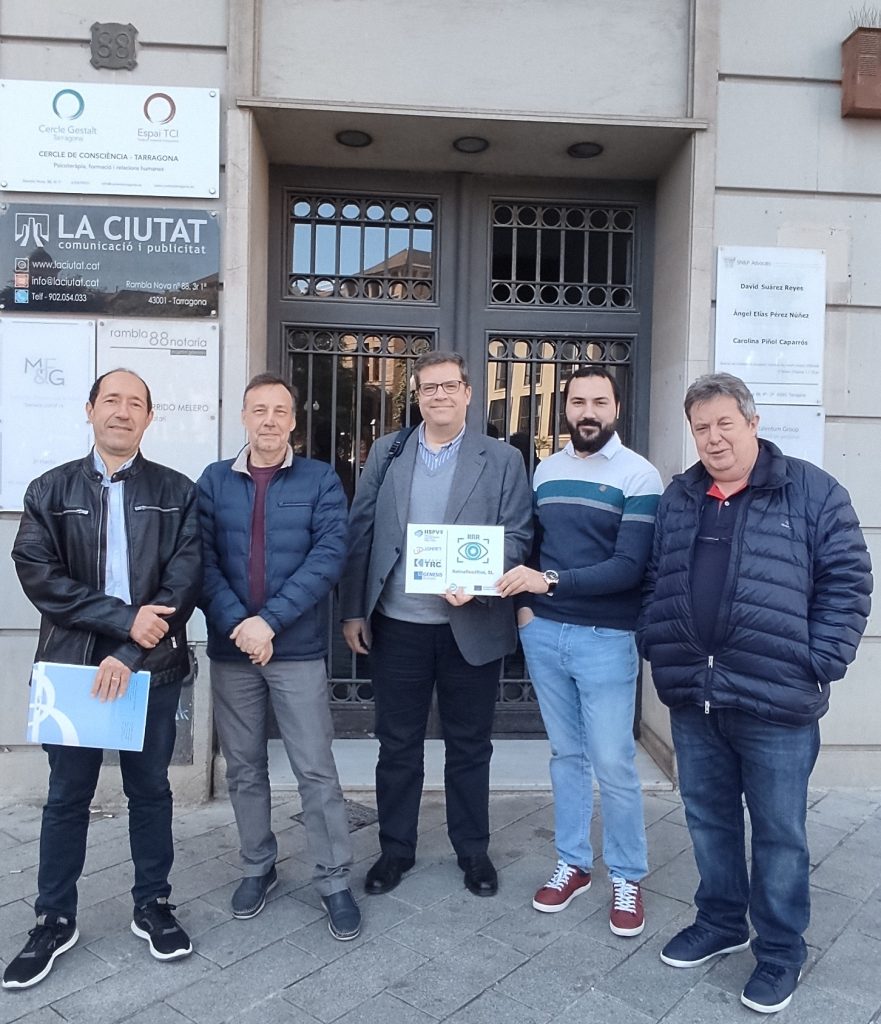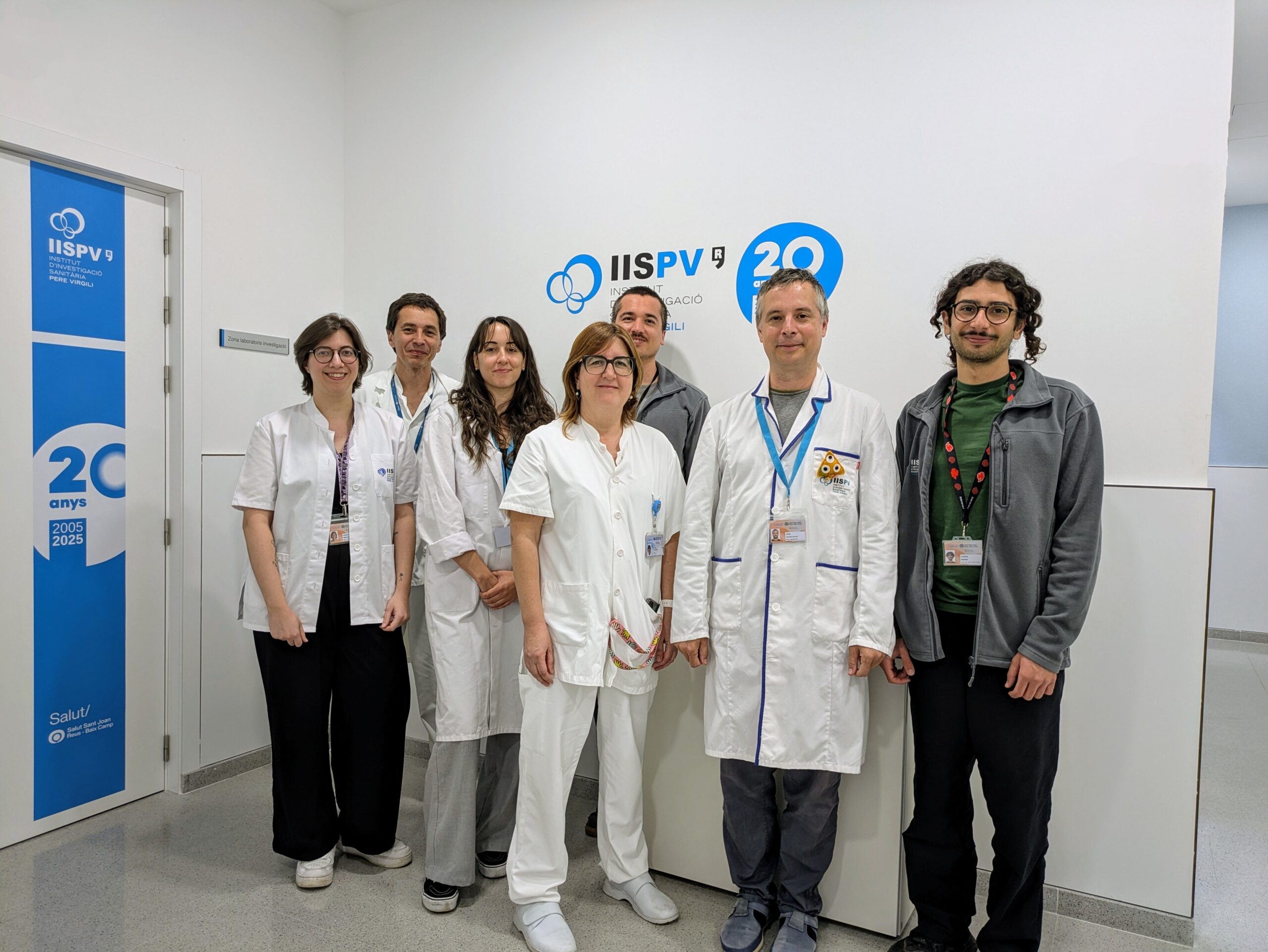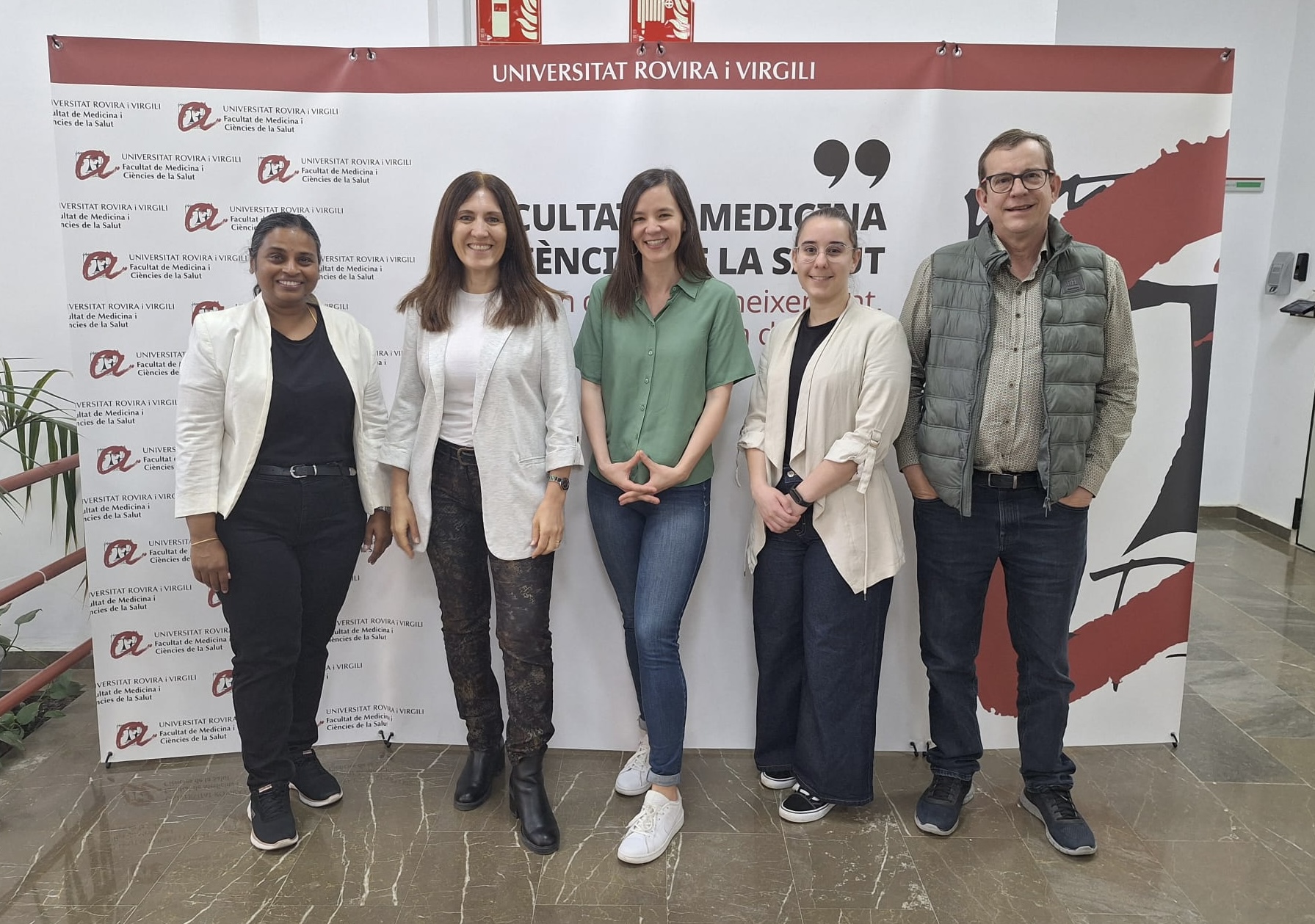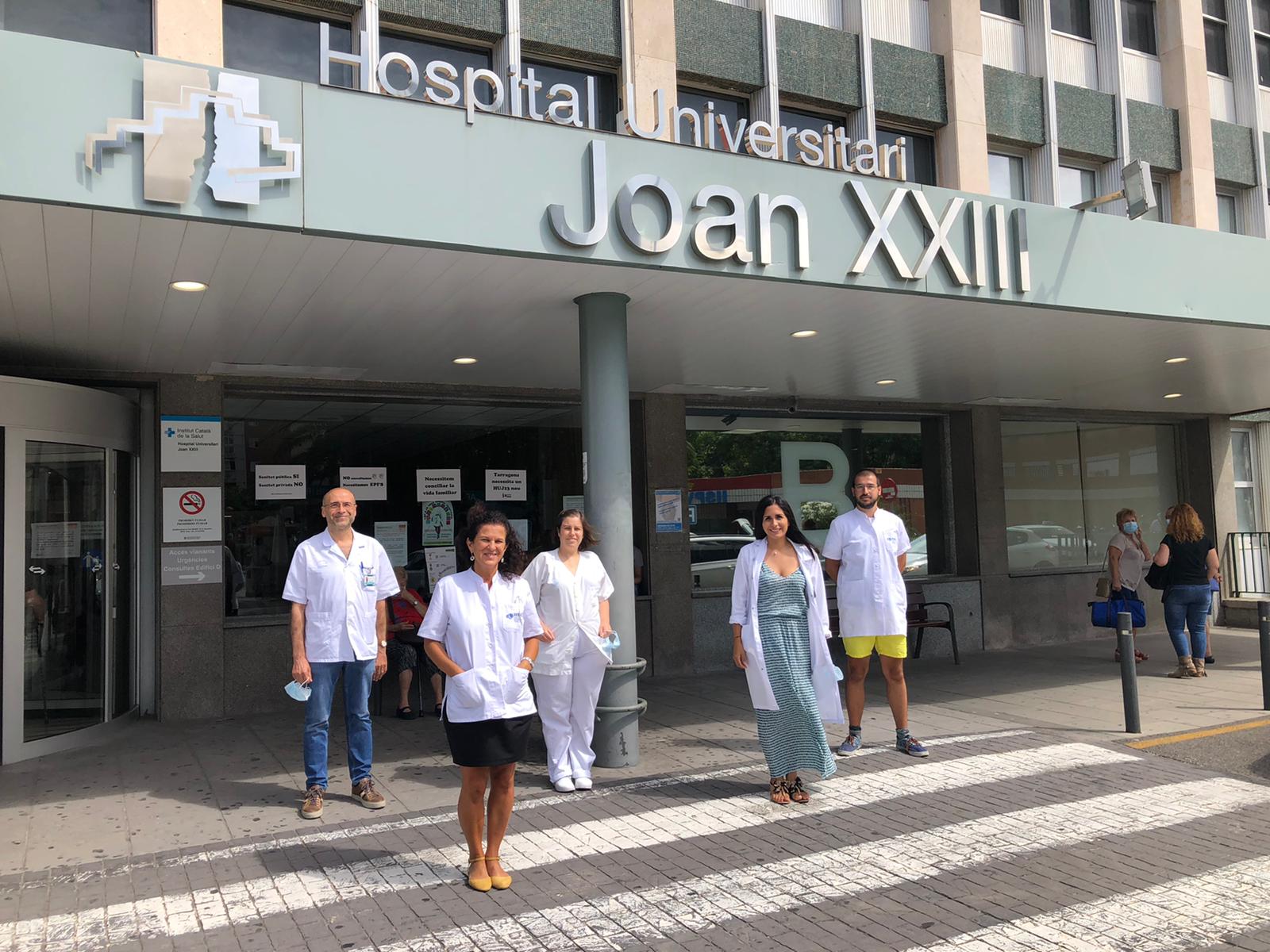

The more than 10 years of work by researchers from the Pere Virgili Health Research Institute (IISPV) and the Rovira i Virgili University (URV) in the field of diabetic retinopathy (a very common eye condition in people with diabetes of type 2) has recently crystallized in the constitution of the spin-off RetinaReadRisk, in which different partners take part. The spin-off company will market software and a mobile system based on artificial intelligence to detect and treat this pathology in the early stages.
In Catalonia, the test to detect diabetic retinopathy (consists of examining the fundus of the eye with a non-mydriatic camera) is carried out in certain primary care centers (CAP), mostly located in cities. Precisely, one of the objectives of the spin-off is to integrate this mobile system and the computer programs developed with the help of artificial intelligence to the entire Catalan public health system, so that people can be explored by their doctor without the need for commute.
To make it possible, this project will be submitted to a call by the Department of Health of the Generalitat de Catalunya that selects the most innovative technological solutions to integrate them into the public network of primary care centers. On the other side, the fact that the spin-off RetinaReadRisk has been created within the framework of an EIT Health program (which is part of the European Institute of Innovation and Technology -EIT-, a body of the European Union that co-finances the homonymous project, RetinaReadRisk) expands its business opportunities to other territories and countries.
GENESIS Biomed has acted as a Venture Building platform, has invested in the spin-off through its investment vehicle (GENESIS Tech Transfer Boost) and is currently assuming the duties of interim CEO of the company. In the words of Josep Lluís Falcó, CEO of GENESIS Biomed: “We are facing a huge opportunity that can change the paradigm of diabetic patient management, anticipating their potential evolution towards diabetic retinopathy. We offer a powerful tool that will end up leading to significant savings for the national health system.”
Artificial intelligence in health
“The research carried out in recent years by the IISPV and the URV in the fields of diabetic retinopathy and artificial intelligence led to the development of two software: Mira, which allows a reading to be carried out automatic of the images of the fundus of the patient’s eye and which, therefore, will identify whether or not diabetic retinopathy exists; and a second software, the Retiprogram, which, based on a series of clinical and personal data, determines the risk of a person with type 2 diabetes of suffering from diabetic retinopathy, in addition to calculating when the next control must be carried out”, explains Pere Romero, researcher in charge of the Ophthalmology Research Group of the IISPV.
The basis of the Mira program is Deep Learning: thousands of images are taken of the fundus of the patient’s eye, and these are labeled according to the degree of evolution of diabetic retinopathy. In this way, the software developed by the URV team analyzes these thousands of images with the help of artificial intelligence, learns to distinguish the various degrees of retinopathy and classifies them based on the patterns it identifies “so that, once new images of patients have been analyzed, a reliable diagnosis can be made based on this previous training”, points out Domènec Puig, researcher in the ITAKA group of the Department of Computer Engineering and Mathematics of the URV and co-founder of UP2Smart, the spin-off of the university which is also one of the member societies of RetinaReadRisk. “Within the framework of the project financed by EIT Health, work is being done on the integration of these two software in a compact and easy-to-use mobile system”, he adds.
Entrepreneurial initiatives like those of RetinaReadRisk are key to addressing diseases with a high incidence in our society in a more efficient and personalized way. Diabetic retinopathy is a very common condition of the retina in people who suffer from type 2 diabetes (25% of the population in Spain has this type of diabetes). Failure to detect and treat it in the early stages can have significant health consequences, such as a deterioration of night vision that prevents driving or such as blindness (in the case of developing countries).
About the RetinaReadRisk spin-off and the founding partners
RetinaReadRisk
The partners who founded this spin-off are: IISPV, GENESIS Biomed, UP2Smart (URV) and Grupo TRC (Telefónica). The new spin-off RetinaReadRisk hopes to attract private and public funding in the next 2-3 years for an approximate amount of 5 million euros to be able to finalize the development of the product and commercialize it.
GENESIS Biomed
GENESIS Biomed is a consultancy firm that operates in the biomedical sector and is specialized in the provision of services to newly formed companies mainly from universities, research centers, hospitals and technology centers. GENESIS Biomed is headquartered in Barcelona and it also has offices in Madrid.
IISPV
The Pere Virgili Health Research Institute is an institution of international prestige that brings together biomedical research led from Camp de Tarragona and the Terres de l’Ebre. It includes the University Hospital of Tarragona Joan XXIII; the Hospital of Tortosa Verge de la Cinta; the Sant Joan University Hospital, in Reus; and the Pere Mata Group. Rovira i Virgili University is also linked to it.
UP2Smart
UP2Smart is an spin-off company from the URV. It is dedicated, among others, to offering automatic and embedded systems based on computer vision and artificial intelligence; and to provide technological products and services for industrial and business sectors. For illustrative purposes, but not limiting, UP2Smart is also dedicated to offering consulting services, technological advice, software and app development, user support and web solutions.
Grupo TRC
Grupo TRC has its TRC Health division backed by more than 25 years of work in hospital networks. The uniqueness of the solutions developed, as well as the high level of demand and criticality of the systems and software used, make it possible to complete a broad technological portfolio based on experience and innovation. The objective of this division is the development of systems that improve hospital processes, with high levels of security and reliability, guaranteeing profitability, and agility and ease of management.
EIT Health
EIT Health is a network of best-in-class health innovators with approximately 130 partners and is supported by the European Institute of Innovation and Technology (EIT), a body of the European Union. It collaborates across borders to deliver new solutions that can enable European citizens to live longer, healthier lives. It connects all relevant healthcare players across European borders – making sure to include all sides of the “knowledge triangle”, so that innovation can happen at the intersection of research, education and business for the benefit of citizens.


